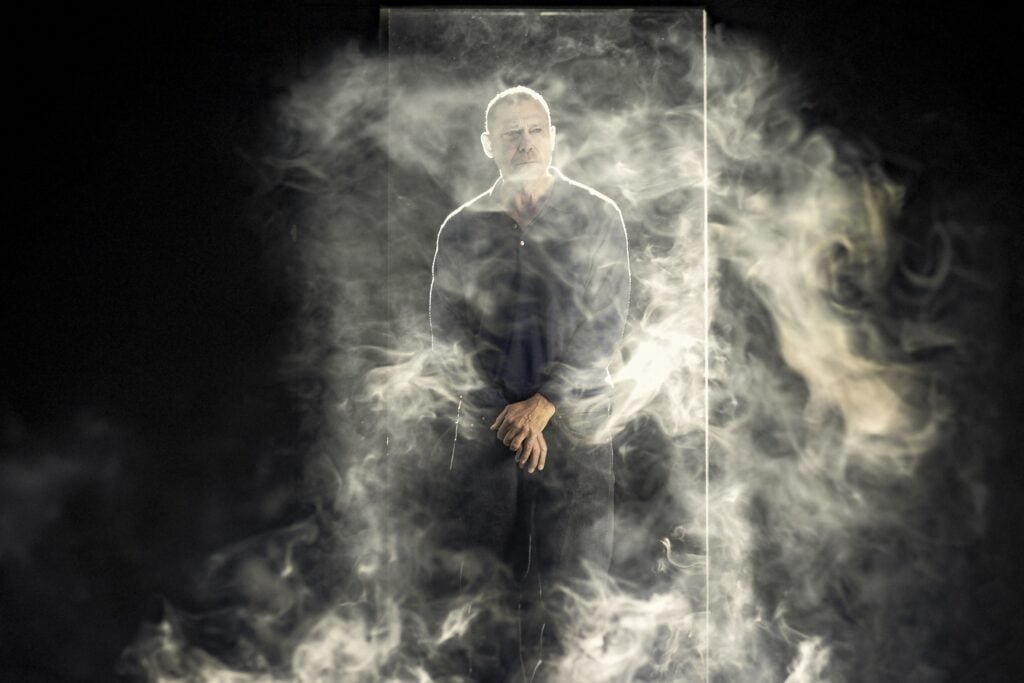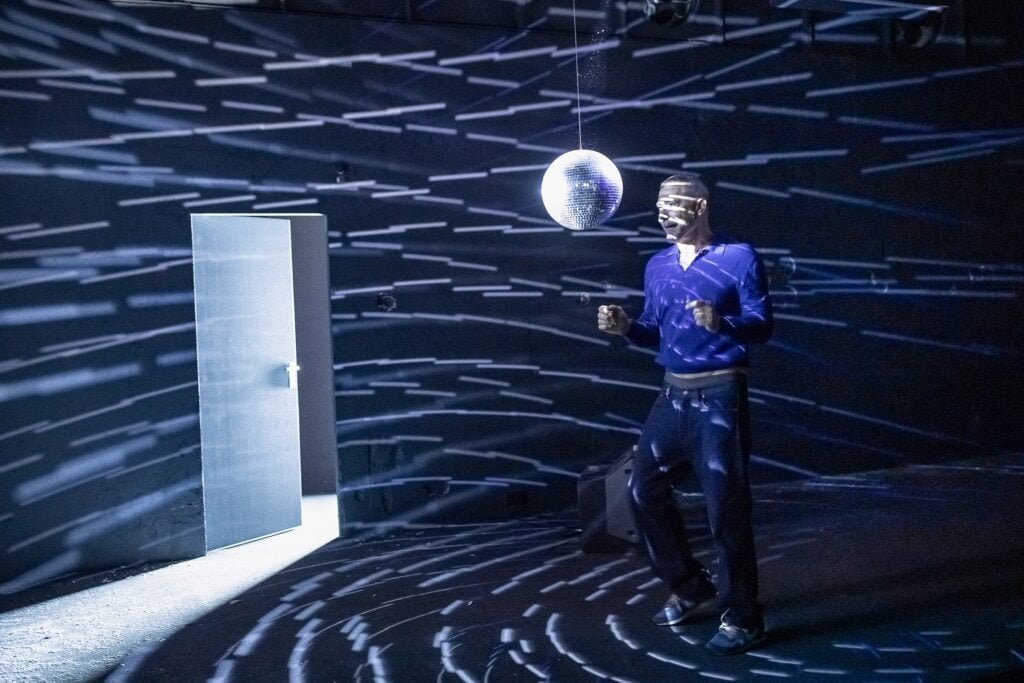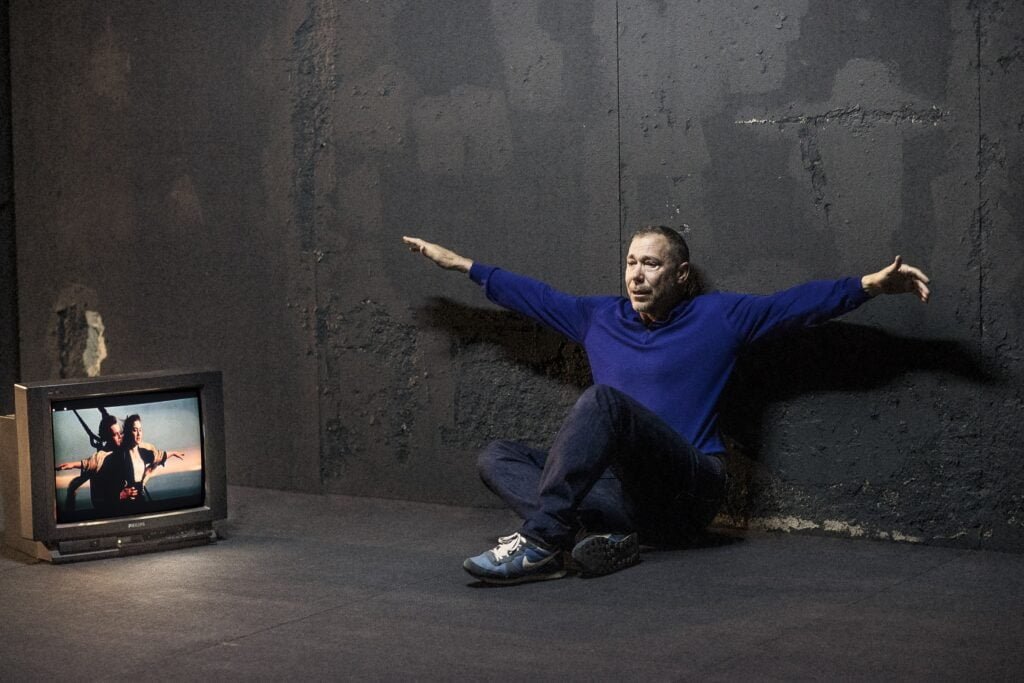Poverty, violence and homophobia
“Forget or die, or forget and die from the rage within.
Édouar Louis

From the celebrated young, gay French writer Édouard Louis, comes a play translated adapted and directed by Ivo van Hove. Dutch actor Hans Kesting plays the central figure of Édouard recalling his family history and creating for us his father and his mother.
His family history is an ugly one, where his violent and drunken father terrorises the whole household, repeating behaviour learnt from his father, but the blame here is firmly placed, not on his genes, but on the lack of support for those living in poverty. There were seven in that household, two children his mother has before meeting his father and three of his of whom Eddy was the eldest. Eddy Bellegueule renamed himself Édouard Louis.
They live in Picardy, Northern France where Marine Le Pen found supporters for the far right, many of those living subsistence lives. Édouard Louis’s father worked in a factory for ten years before in an industrial accident a storage container fell on him and left him bed ridden and on morphine.
The set is a cell with a single bed, an oxygen cylinder, a television, two windows and a door. In the dark walls are holes set at waist height which we later learn were made by his father’s fists punching the walls. In another biography Louis reveals that his mother covered the holes with the children’s primary school drawings.

As Hans Kesting talks about the father he places his hands in his jumper at waist level, rolls them and extends the shape as if this is the pot belly of Louis’s father. There is this detailed description of a child witnessing a violent father.
He opens the door to smoke and Jan Versweyveld’s lighting pours into the room outlining the smoke – so dramatically powerful. The cigarette induces a long and painful coughing fit.
As he describes taking the part of the lead female in an Abba concert, a disco ball spins fast sprinkling not just lit star shapes but continuous lines of excitement. His father does not watch and this is the first time we hear about his father’s discouraging any femininity in his son.
We clearly understand why Louis does not identify with masculine things when we hear about his paternal role model. “Why do you behave like a girl?” asks his father. Louis falls in love with the film Titanic and Louis imitates the arms outstretched action on board to the Céline Dion song, “My Heart Will Go On”. His mother joins the father’s refrain and accuses him of being a faggot.
A shocking crash marks the factory accident crippling his father leaving the family with no income other than l’Assiste and other government cuts make inroads into health funding for those with digestive problems. Incentives for the unemployed to return to work mean many are forced to take a job, even those like his father who is bent over with pain, street cleaning picking up rubbish.
Hans Kesting rages against the murderers, those who are never named for their murders, those in power and privilege who do nothing about poverty. It is a strong and compelling performance from Kesting although I am not convinced by Louis’s arguments about politics. It is a grim projection as we all face a cost of living crisis and quadrupling energy bills and not likely solved by a type of 1789 Revolution.

Production Notes
Who Killed My Father
After the book by Édouard Louis
Translated, adapted and directed by Ivo van Hove
Cast
Starring:
Hans Kesting
Creatives
Director: Ivo van Hove
Scenography and lighting: Jan Versweyveld
Music: George Dhauw
Costiumes: An D’Huys
Information
Running Time: One hour 40 minutes without an interval
Booking to 24th September 2022
Theatre:
Young Vic
66 The Cut
Waterloo
London SE1 8LZ
Tube/Rail : Waterloo/Southwark
Telephone: 020 7922 2922
Website: youngvic.org
Reviewed by Lizzie Loveridge
at the Young Vic
on 8th September 2022

